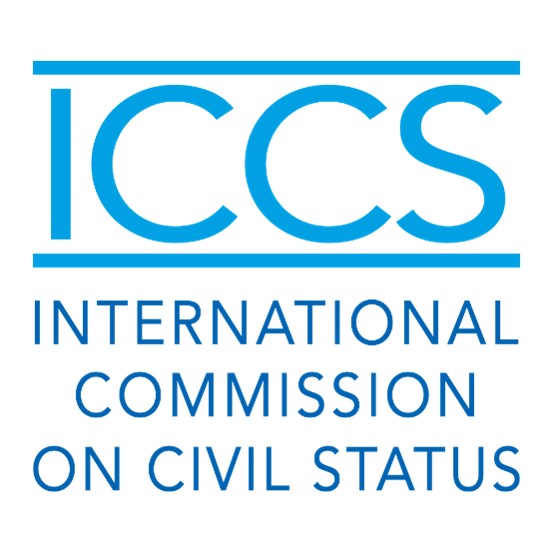The latest issue (2022/2) of the Dutch/English journal Nederlands Internationaal Privaatrecht is dedicated to cross-border involvency.
Editorial: P.M. Veder, De Wet internationaal insolventierecht / p. 203-207
Articles
Welling-Steffens, Hoofdlijnen voor een wettelijke regeling van het commune internationaal insolventierecht. Bevoegdheid inzake, toepasselijk recht op, en erkenning van ‘derde-lands’ insolventieprocedures en aanverwante vorderingen / p. 208-226
Abstract
This article outlines a proposal on principles for future Dutch legislation on international insolvency law in relation to foreign insolvency proceedings held in so-called third countries (i.e. non-EU states). Itcommences with an overview of the current status of the Dutch national private international law rulesin respect of jurisdiction in, the applicable law to and the recognition of foreign insolvency proceedings and related actions held in third countries. Other than three scant provisions in the Dutch Bankruptcy Act, there is no legislation in relation to international insolvency law regarding foreign non-EU insolvency proceedings and the current rules are all based on case law, culminating in the Yukos case decided by the Dutch Supreme Court. Subsequently, the author, inspired by such Dutch case law, previous proposals on international insolvency law in the Netherlands like the 2007 legislative pre-proposal of the Kortmann Committee on insolvency, the UNCITRAL Model Laws and the various proposals put forward in Dutch legal literature, outlines a proposal on principles for legislative rules on (indirect) jurisdiction in, the applicable law to and the recognition of foreign (non-EU) insolvency proceedings.
Madaus, The German law on the recognition of foreign insolvency and restructuring proceedings / p. 227-240
Abstract
The recognition of third country insolvency proceedings in Germany does not follow the mechanisms of the EIR but falls within the scope of the respective national frameworks of international insolvency law. While Germany did not adopt the UNCITRAL Model Law on Cross-Border Insolvency, §§ 335-359 InsO provide rules that in many respects even resemble those of the EIR 2000. The framework is more recognition-friendly than the Model Law and is accompanied by rules for the recognition of foreign judgments in civil and commercial matters as well as Private International Law rules on the recognition of any modification of substantive rights by foreign law. Non-EU main restructuring and insolvency proceedings including their plans – in particular US Chapter 11 plans – are thereby routinely recognized in Germany without any need for court involvement. The recognition of scheme-type procedures would be available under these frameworks, but probably not under the cross-border insolvency framework.
Garcimartín & N. Bermejo, Spanish national rules on cross-border insolvency proceedings: a symmetrical approach / p. 241-251
Abstract
This paper examines the Spanish national rules on cross-border insolvency proceedings applicable vis-à-vis non-EU countries (including Denmark) laid down in Book III of the Spanish Insolvency Act. These rules aim to extend unilaterally the model of mitigated universalism enshrined in the EU Regulation outside its scope of application. According to those rules, the main insolvency proceedings will be opened in Spain if the debtor has its centre of main interests (COMI) here in Spain and, as a result, their opening, as well as their effects, conduct and closure, will be regulated by the Spanish Insolvency Act (lex fori concursus), with certain exceptions. Likewise, territorial proceedings may be opened in Spain if the debtor’s COMI is located in a third country, but it has an establishment here. Likewise, the paper studies the specific rules for the recognition in Spain of insolvency proceedings opened in foreign (non-EU) countries (including Denmark) and the rules on coordination and cooperation between proceedings. In addition, it describes the rules on the publicity of insolvency proceedings, information for foreign creditors and the submission of their claims. Finally, it analyses the rule of negative reciprocity, which constitutes a general safeguard in the event of a lack of reciprocal cooperation by the corresponding third country.
T.H.D. Struycken, Grensoverschrijdende insolventieprocedures en rechten op goederen in andere landen / p. 251-276
Abstract
Article 8 of the EU Insolvency Regulation (2015 recast) dominates the current thinking on insolvency proceedings in relation to rights in rem in assets situated in other jurisdictions. Implicit in the rule is the assumption that recognition of foreign security interests is too complicated. Hence, rights in assets in other EU Member States are de facto excluded from the insolvency proceedings. This article analyses the justification for the rule in Article 8, and rejects it. Recognition of foreign rights in rem is, and should be, the basic principle in the Netherlands, both outside and inside cross-border insolvency proceedings. The author proposes not to mirror Article 8 when codifying the PIL rules for cross-border insolvency proceedings outside the scope of the EU Insolvency Regulation, and formulates a first draft for a possible statutory rule.
P.M. Veder, Verrekening in de Wet internationaal insolventierecht / p. 277-287
Abstract
The Dutch government has announced that it will prepare draft legislation to address the cross-border aspects of insolvency proceedings that fall outside the scope of the EU Insolvency Regulation. This article examines which rules should be included in such draft legislation concerning set-off. It critically analyzes the approach to set-off in the European Insolvency Regulation and looks at the current state of play at UNCITRAL. The conclusion is that, even though the approach to set-off in Article 9(1) EIR is not convincing – there is no sound justification for offering protection to a creditor on the basis of the law applicable to the insolvent debtor’s claim – the Dutch legislator would nevertheless be well advised to follow the rules in the EIR concerning the applicable law, including Article 9(1) EIR, as much as possible. By following the rules in the EIR on the applicable law, insolvency proceedings and their effects are governed by the same law, regardless of whether the EU Insolvency Regulation applies or not. This promotes legal certainty and the practical applicability of a statutory regulation of cross-border insolvency proceedings in Dutch customary private international law.
C.G. van der Plas, Informatievergaring door buitenlandse curatoren in Nederland – heden en toekomst / p. 288-302
Abstract
It is not uncommon for foreign bankruptcy trustees to encounter Dutch entities or Dutch bank accounts when settling the bankruptcy. Think, for example, of a foreign bankruptcy in which the bankrupt entity has siphoned off assets through a web of entities in various jurisdictions. In order to be able to follow the bankrupt’s trail across the border, the bankruptcy trustee needs information about those entities. This article examines the means of discovery available to a bankruptcy trustee in a foreign (non-EU) bankruptcy in the Netherlands. After identifying the problems that a foreign bankruptcy trustee may be confronted with under the current Dutch system, the possibilities offered by the UNCITRAL Model Law on Cross-Border Insolvency will be examined. The article concludes with a recommendation for a future amendment to the Dutch Bankruptcy Act.
Pepels, Het Nederlandse internationaal groepsinsolventierecht – cause for concern? / p. 303-318
Abstract
Following the drafting of the Dutch Bankruptcy Act in the 1890s, the manner in which large enterprises are legally organized has undergone significant changes. Multinational groups of companies have become an important driving force behind the Dutch and the European economies. Dutch domestic international insolvency law, however, does not address the issues that are specific to cross-border group insolvencies. In this article, the author sets out to analyze whether there is any need for a Dutch domestic law on cross-border group insolvencies and, if so, what the contours thereof should be. In doing so, the article discusses the provisions on cross-border group insolvency as introduced by the 2017 EU Insolvency Regulation (recast) and UNCITRAL’s 2019 Model Law on Enterprise Group Insolvency. As the Dutch legislator is currently evaluating the options to revise the Dutch Bankruptcy Act on the topic of domestic cross-border insolvency law, the article concludes with various recommendations on group insolvencies that could align the legal treatment of insolvent multinational groups of companies more with the economic reality.



